Healthy Vegan Diet For Toddlers: A Comprehensive Guide

- Key Takeaways
- Vegan Diets for Babies and Toddlers
- Introducing Solid Foods
- Vegan Alternatives for Babies
- Tips for Introducing Vegan Foods to Babies and Toddlers
- Easy and Healthy Vegan Recipes for Babies and Toddlers
- Consulting with Professionals
- Conclusion
- FAQs
Navigating the world of parenting can be tough, especially when it comes to feeding your little ones a vegan diet. However, growing evidence suggests that with balanced meal plans and appropriate nutrient supplements, vegan diets can fully support healthy growth in infants and toddlers.
This article will guide you through vegan food options, nutritional needs of babies and toddlers, potential concerns over essential nutrients like Vitamin B12 and calcium from plant-based sources, tips for introducing such foods into their diet - all tailored exclusively for your young ones' rapid development stages.
Ready to embark on this exciting journey? Let's dive right in!
Key Takeaways
- Vegan diets for babies and toddlers can meet their nutritional needs and promote healthy growth and development.
- Plant-based foods like beans, grains, nuts, seeds, and green leafy vegetables provide important nutrients such as protein, zinc, iron, calcium, vitamin B12, omega-3 fatty acids, and iodine.
- Vitamin supplements like vitamin B12 and D are important for vegan toddlers. It is also essential to introduce allergenic foods gradually while considering allergies or sensitivities.
- Introducing solid foods can include mashed avocado, pureed sweet potatoes, bananas peas oatmeal,and tofu. Homemade vegan baby food can be prepared by using organic ingredients and single-ingredient purees.
- Plant-based milk options post-weaning include soy milk (fortified with calcium), almond milk (unsweetened fortified with calcium), coconut milk (in moderation due to high fat content), oat milk (fortified with calcium and vitamin D), rice milk (lower in protein).
- Commercial vegan formulas are available as a safe alternative to traditional dairy - based formulas. Gradual introduction of vegan foods is necessary for babies' acceptance. Strategies for picky eaters include parental modeling of healthy eating habits involving children in meal preparation.
Vegan Diets for Babies and Toddlers
Vegan diets for babies and toddlers offer a range of benefits, including meeting their nutritional needs, promoting healthy growth and development, and instilling lifelong healthy eating habits.
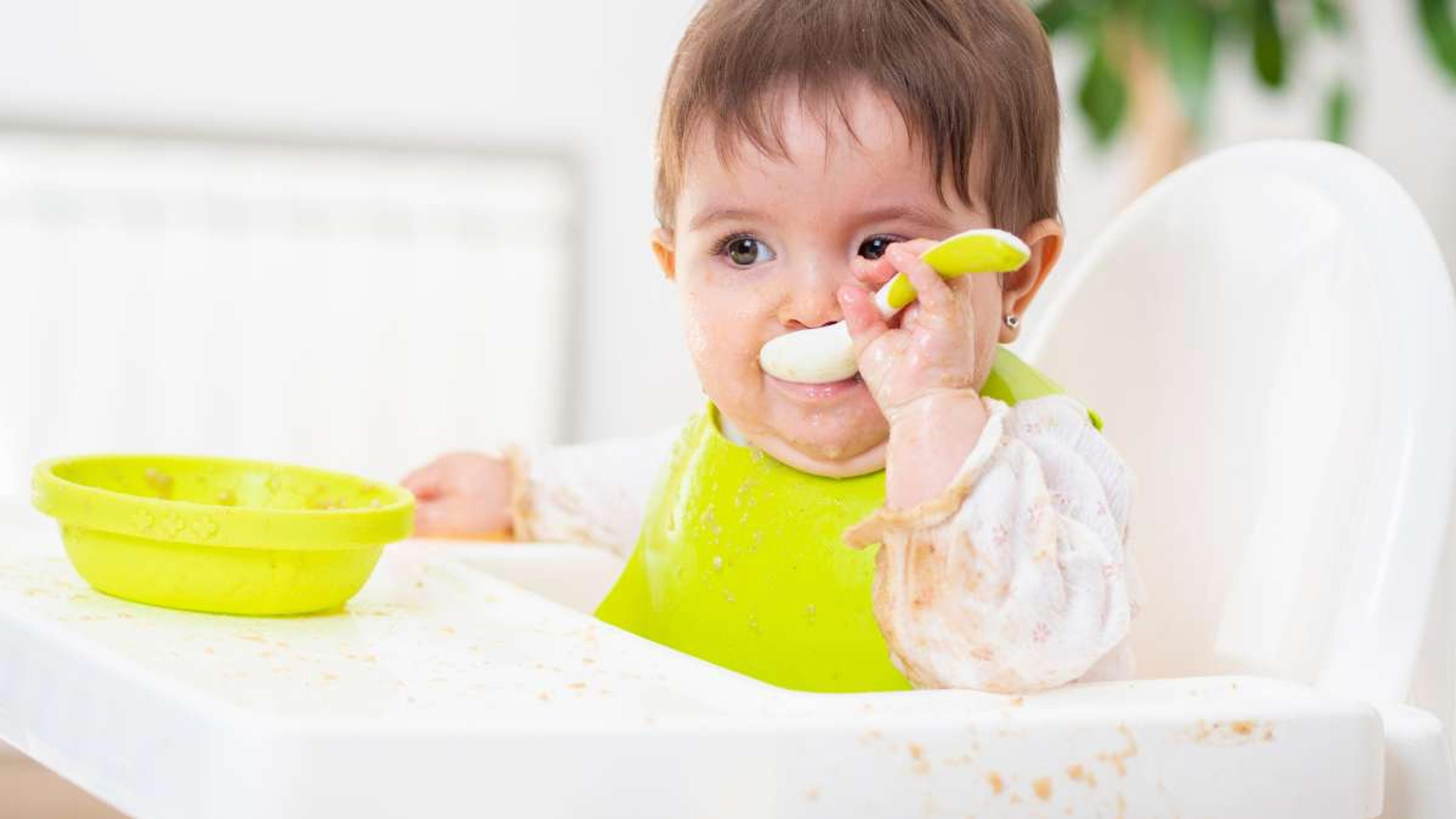
Benefits and considerations
Vegan diets can be very good for babies and toddlers. They are rich in grains and legumes. These foods give a lot of vitamins to little kids. But vegan diets need extra care too. Some important things, like fat, protein, and iodine, might be low in plant-based meals.
Babies under 12 months should not eat added salt because it is bad for them. Also, fiber could be high in vegan food which is not suitable for young ones' tummies. Kids eating vegan food will grow up lean and have less risk of health problems like obesity or heart disease later on.
Parents have to make sure their children get enough nutrients like vitamin B12 from the food they provide.
Nutritional needs and sources
The nutritional needs of babies and toddlers on a vegan diet differ greatly from those on a conventional diet. Therefore, it's important to know which plant-based foods can provide the necessary nutrients.
- Protein: Beans, grains, nuts, seeds, and green leafy vegetables. Soy and its derivatives also provide protein.
- Zinc: Various vegetables, particularly those rich in iron.
- Iron: Green leafy vegetables, lentils, chickpeas, beans, tofu, and fortified breakfast cereals
- Calcium: Fortified plant milks, calcium-set tofu, sesame seeds, and bread
- Vitamin B12: Fortified foods or supplements
- Omega-3 fatty acids: Flaxseeds, chia seeds, walnuts, and fortified foods
- Vitamin D: Sunlight exposure and fortified foods or supplements
- Iodine: Seaweed, iodized salt, and fortified foods
These sources ensure that vegan babies and toddlers receive a sufficient intake of necessary nutrients, promoting healthy growth and development.
Vitamin supplementation
Vitamin supplements are key in a vegan toddler's diet. Some vitamins, like vitamin B12 and D, are harder to get from plant-based foods. These may lack enough of these vitamins. So, it is smart to use supplements as part of the child's daily routine.
For vegan children, 400 IU of Vitamin D each day is advised by doctors. Also, don't forget about calcium! This helps for strong bones and teeth while growing up. You can find it in things like almonds and tofu but using a supplement can help too.
Allergies and sensitivities
Children with allergies may have increased nutritional needs because they might not be getting all the necessary nutrients from their limited diets. For children following a vegan diet, there are potential risks and challenges related to allergies.
Since vegan diets exclude common allergenic foods like dairy and eggs, it can be difficult for parents to introduce animal-based allergens to their vegan children. Limited research on this topic makes it hard to know how to navigate food allergies in vegan infants and toddlers.
It's important for parents of vegan children with allergies to consult with healthcare professionals who can provide guidance on meeting nutritional needs while also managing allergies effectively.
Introducing Solid Foods
When it comes to introducing solid foods to vegan babies, there are plenty of plant-based options that provide essential nutrients for their growth and development. From mashed avocado to pureed sweet potatoes, these first foods are not only nutritious but also delicious for your little one to explore.
Read on to discover more about homemade vegan baby food and how you can make the transition smoothly.
Plant-based first foods for babies
Babies can try different plant-based foods as their first foods. Here are some options to consider:
- Avocado: Avocado is a great first food for babies because it's soft and easy to mash.
- Sweet potatoes: Cooked sweet potatoes can be mashed or pureed for babies to try.
- Bananas: Bananas are another soft fruit that babies can easily eat and enjoy.
- Peas: Steamed peas can be mashed or pureed for babies to try, providing them with protein and fiber.
- Oatmeal: Cooked oatmeal is a nutritious option for introducing grains to your baby's diet.
- Tofu: Soft tofu can be mashed or pureed for babies, providing them with protein and iron.
Preparing homemade vegan baby food
Making homemade vegan baby food is a great way to ensure that your little one gets all the nutrients they need. Here are some tips for preparing delicious and nutritious vegan baby food at home:
- Choose organic ingredients whenever possible to minimize exposure to pesticides and other chemicals.
- Start with single-ingredient purees, such as mashed avocado, steamed sweet potato, or pureed cooked peas. This allows you to introduce new flavors gradually and identify any potential allergies or sensitivities.
- Use a blender or food processor to puree the ingredients until they reach a smooth and creamy consistency. You can also add breast milk, formula, or water to achieve the desired texture.
- Freeze individual portions in ice cube trays or silicone storage containers for easy portion control and convenience. Once frozen, transfer the cubes into labeled freezer bags for future use.
- When serving homemade baby food, thaw only what you need for each meal to maintain freshness and prevent waste.
- As your baby grows older, you can introduce more complex flavors and textures by combining different fruits, vegetables, and grains in their meals.
- Always practice proper hygiene by washing your hands thoroughly before handling ingredients and using clean utensils during preparation.
- Remember to consult with your pediatrician or a registered dietitian for guidance on appropriate portion sizes and introducing new foods based on your baby's age and developmental stage.
Vegan Alternatives for Babies
Explore the wide range of plant-based milk options and commercial vegan formulas available for your baby's nutritional needs. Find out more about vegan alternatives to ensure their healthy development and growth.

Plant-based milk options post-weaning
After weaning, there are several plant-based milk options that can be given to babies and toddlers. Here are some choices:
- Soy Milk: Soy milk is a popular plant-based milk alternative for children. It has a similar protein content to cow's milk and is often fortified with calcium and vitamin D.
- Almond Milk: Almond milk is another option that can be introduced post-weaning. It is low in calories and contains healthy fats, but it is important to choose unsweetened varieties and ensure they are fortified with calcium.
- Coconut Milk: Coconut milk can also be considered as a plant-based milk option for toddlers. However, it should be used in moderation due to its high saturated fat content.
- Oat Milk: Oat milk is gaining popularity as a dairy-free alternative. It is naturally sweet and creamy, but make sure to choose brands that are fortified with calcium and vitamin D.
- Rice Milk: Rice milk is often well-tolerated by children with allergies or intolerances to other types of milk. However, it is lower in protein compared to other options, so it may not provide adequate nutrition on its own.
Commercial vegan formulas
Commercial vegan formulas are available on the market for parents who choose to raise their babies on a plant-based diet. These formulas are considered safe and healthy alternatives to traditional dairy-based formulas.
One example is Baby's Only Protein Pea Plant-Based Formula, which is free from dairy, soy protein, and gluten. It provides essential nutrients that growing infants need for optimal development.
In fact, plant-based baby formula can also be suitable for babies with medical conditions that require soy formula. Safety is an important consideration when choosing a vegan formula, especially regarding the use of pea protein as an ingredient.
Tips for Introducing Vegan Foods to Babies and Toddlers
To make the transition to vegan foods easier for babies and toddlers, it's important to introduce them gradually and offer a variety of textures and flavors.
Gradual introduction
When introducing vegan foods to babies and toddlers, it is important to do so gradually. This allows their taste buds and digestive systems to adjust to new flavors and textures. Start by offering small amounts of plant-based foods alongside familiar ones they already enjoy.
For example, mix pureed vegetables into their favorite fruit purees or sprinkle finely chopped tofu on top of their mashed potatoes. As they become more accustomed to these new flavors, you can increase the amount and variety of vegan foods in their diet.
It's a gradual process that helps them develop a positive relationship with plant-based options while ensuring their nutritional needs are met.
Strategies for picky eaters
Feeding picky eaters, including vegan toddlers and kids, can be challenging. However, there are strategies that parents can use to help their children try new foods. One strategy is to prepare your child for mealtime by talking about the different foods you will be serving and encouraging them to try at least a bite of each food.
Being a role model is also important - if your child sees you enjoying a variety of healthy foods, they may be more willing to try them too. Involving your child in meal preparation can also make them more invested in trying new foods.
Parents can let their children help wash vegetables or mix ingredients together. Another strategy is introducing a wide variety of foods and flavors slowly over time, as it takes many tries for a child to develop a taste for certain foods.
Experimenting with old favorites and offering the same food in different ways (such as steamed broccoli versus raw broccoli) can also encourage picky eaters to expand their food choices.
Variety of textures and flavors
A wide range of textures and flavors is crucial when introducing vegan foods to babies and toddlers. This helps them develop a diverse palate and enjoy the foods they eat. Starting early with different textures, such as smooth purees, mashed fruits or vegetables, and soft cooked grains, can help babies explore new tastes.
As they grow older, adding chunkier textures like finely chopped fruits or veggies, small pieces of tofu or legumes, and whole grain cereals can provide more variety. Offering a mix of colorful fruits and vegetables with distinct tastes like sweet (such as bananas or berries), tart (like citrus fruits), bitter greens (like kale), or creamy avocados can help expand their flavor experiences.
By providing a variety of colors, textures, flavors, and temperatures during mealtime for toddlers who may be reluctant to try new foods around age 2 onwards can enhance their eating experience.
Getting creative with presentation
Make mealtime fun and exciting for your vegan baby or toddler by getting creative with the presentation of their plant-based foods. Use visual and colorful presentations to make the dishes more enticing.
Try making fun shapes with cookie cutters or arranging the foods in appealing patterns on their plate. By incorporating different textures and flavors, you can make mealtime more interesting for them.
Studies have shown that when food is visually appealing, it can encourage exploration and acceptance of new foods by babies and toddlers. So let your creativity shine as you introduce your little one to the wonderful world of vegan eating!
Easy and Healthy Vegan Recipes for Babies and Toddlers
Discover delicious and nutritious vegan recipes that your little ones will love! From applesauce kale smoothies to chickpea flour mini veggie frittatas, these simple recipes are packed with essential nutrients and flavors.
Read on to explore the full list of mouthwatering options for your growing vegan baby or toddler.
Applesauce Kale Smoothie
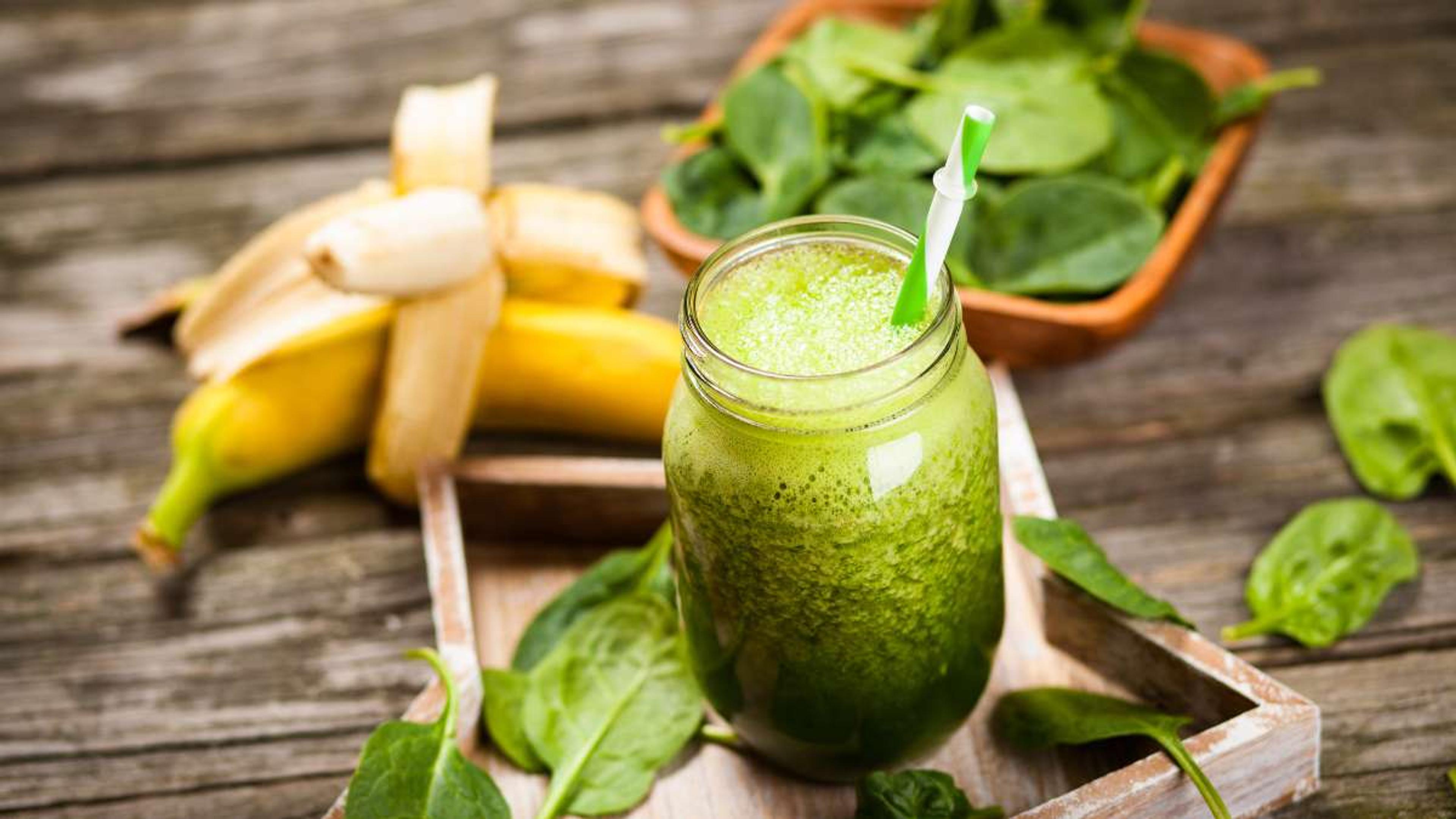
The Applesauce Kale Smoothie is a delicious and nutritious option for babies and toddlers. It's made with kale or spinach, applesauce, bananas, berries, and orange juice. This smoothie is not only great for hot summer days but also packed with vitamins and minerals that are beneficial for growing little ones.
It's free from refined sugar and dairy, making it a healthy choice for young children. The combination of fruits and vegetables provides important nutrients like iron, vitamin C, and fiber.
Many toddlers love the taste of this smoothie because it has a hint of sweetness from the fruit flavors. So go ahead and try this toddler-approved treat that will help your little one get their daily dose of fruits and veggies in an enjoyable way!
Vegetable Alphabet Soup
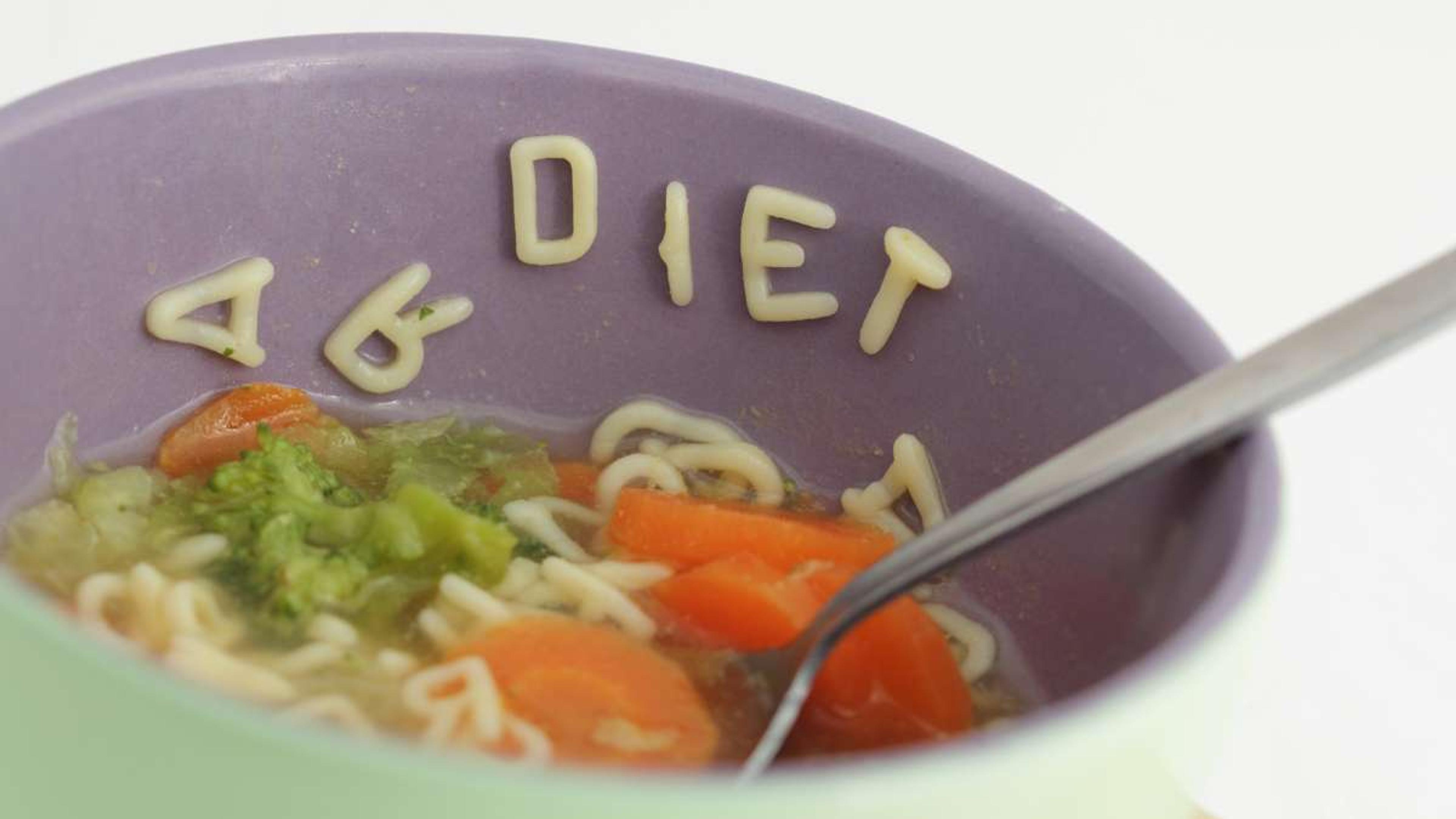
Vegetable Alphabet Soup is a homemade dish that is packed with good-for-you veggies and is super easy to make. This soup is perfect for babies and toddlers because it's nutritious and delicious too! It's made with fresh vegetables, like carrots, peas, and potatoes, which are great sources of vitamins and minerals.
Plus, you can freeze the soup for later use, making it a convenient option for busy parents. And let's not forget how comforting a warm bowl of alphabet soup can be on those cold winter nights! So why not give this homemade version a try? Your little ones will love the fun shapes of the alphabet pasta, while you can feel good knowing they're getting all the nutrients from fresh vegetables in every spoonful.
Broccoli Tater Tots
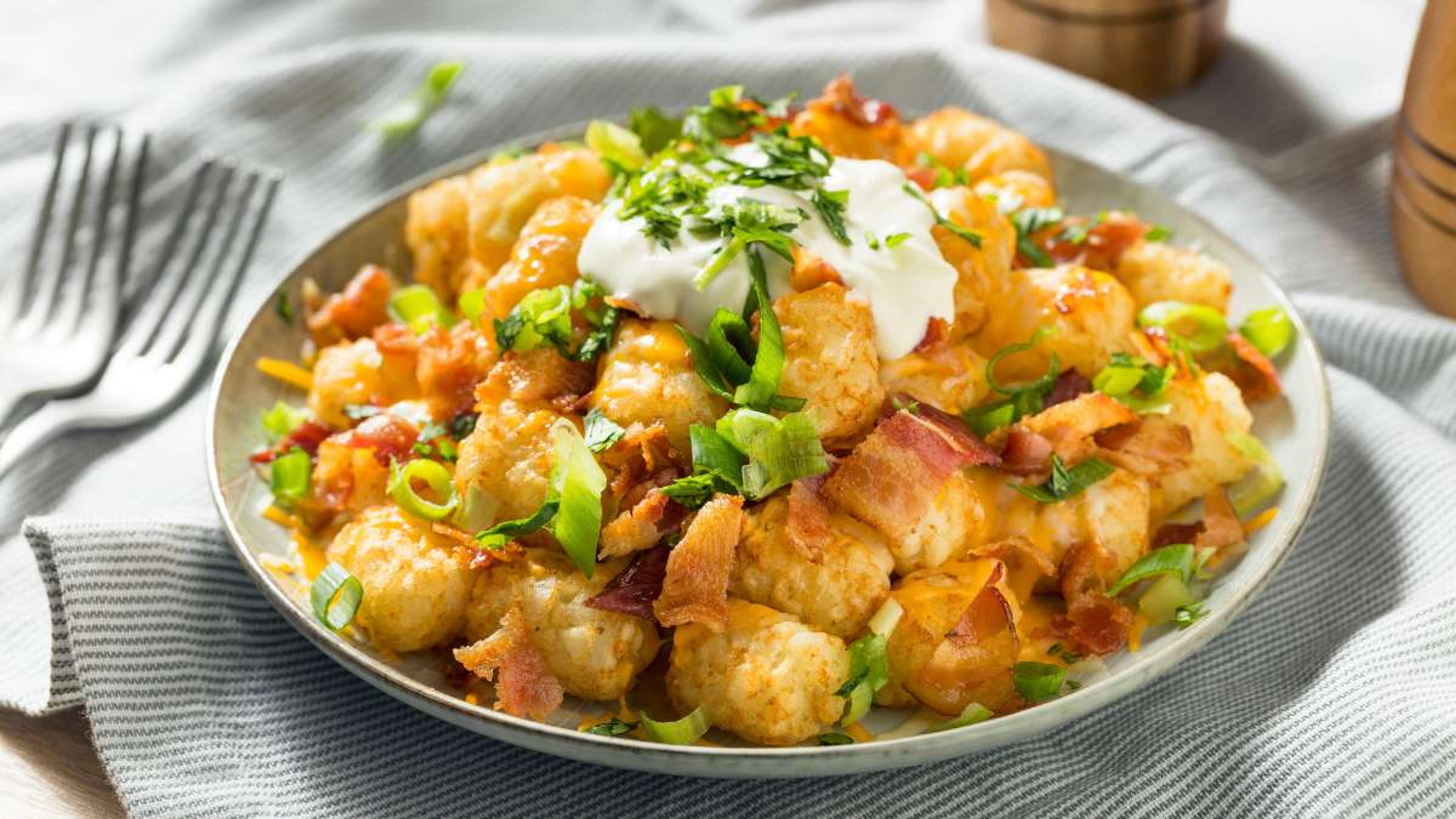
Broccoli Tater Tots are a tasty and nutritious snack for babies and toddlers. Made with a combination of broccoli, potato, and cheddar cheese, they provide vitamins, minerals, and fiber that are important for growing little ones.
These tots can be baked in the oven instead of being fried, making them a healthier alternative. They can also be made in batches and frozen for convenience. If you're following a vegan diet, there are recipes available that use vegan-friendly ingredients to make Broccoli Tater Tots suitable for your little one's needs.
Chickpea Flour Mini Veggie Frittatas
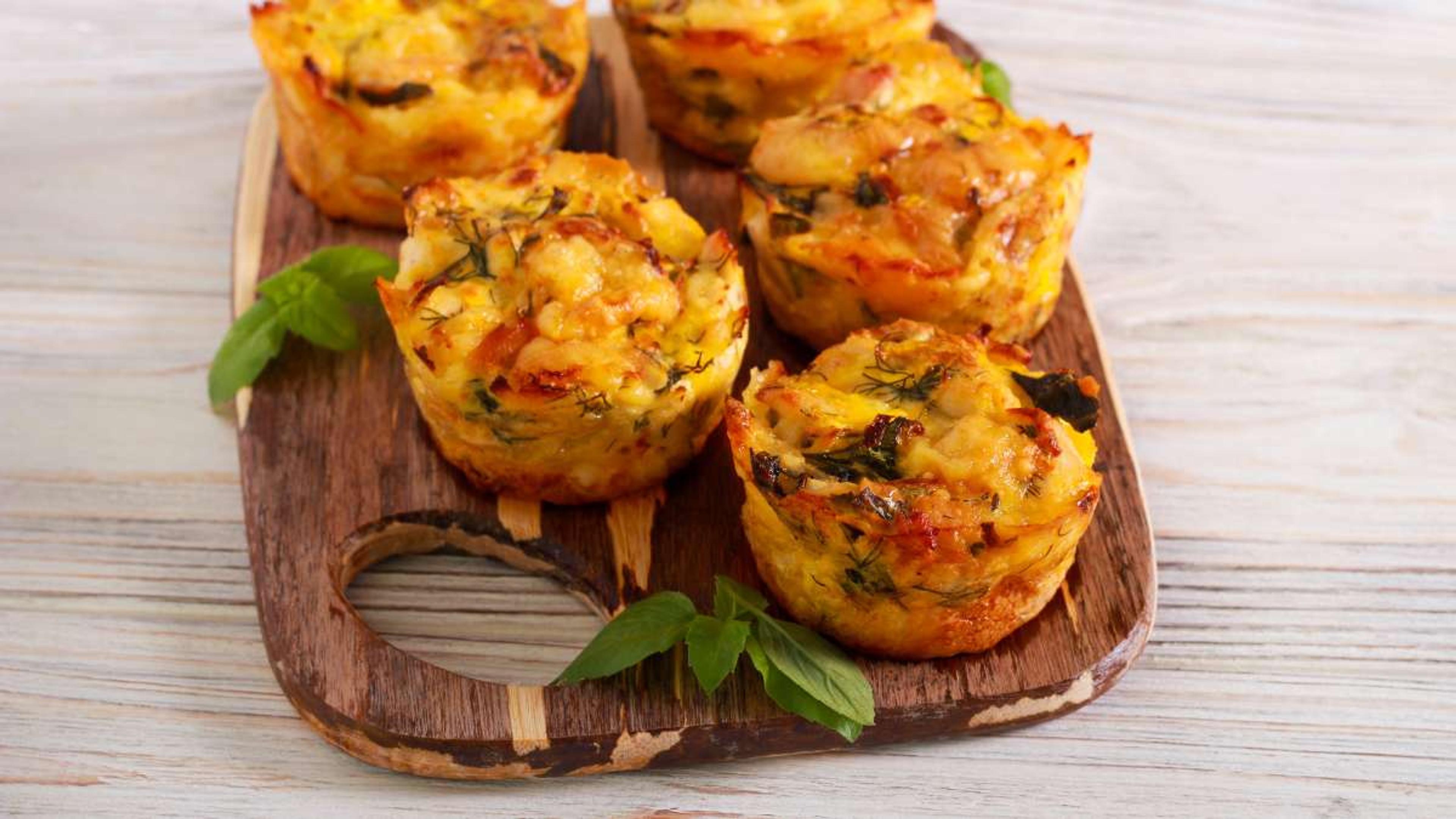
Chickpea Flour Mini Veggie Frittatas are a delicious and healthy vegan recipe that is perfect for babies and toddlers. These frittatas are made with chickpea flour, which is packed with nutrients like fiber and protein.
They are also gluten-free, making them suitable for those with gluten sensitivities or allergies. The frittatas are loaded with nutritious vegetables such as bell peppers, corn, baby spinach, and onions.
Not only do they taste great, but they also provide essential vitamins and minerals that growing children need. With these Chickpea Flour Mini Veggie Frittatas, you can introduce your little ones to the goodness of plant-based eating in a fun and tasty way!
Butternut Squash Creamy Pasta Sauce
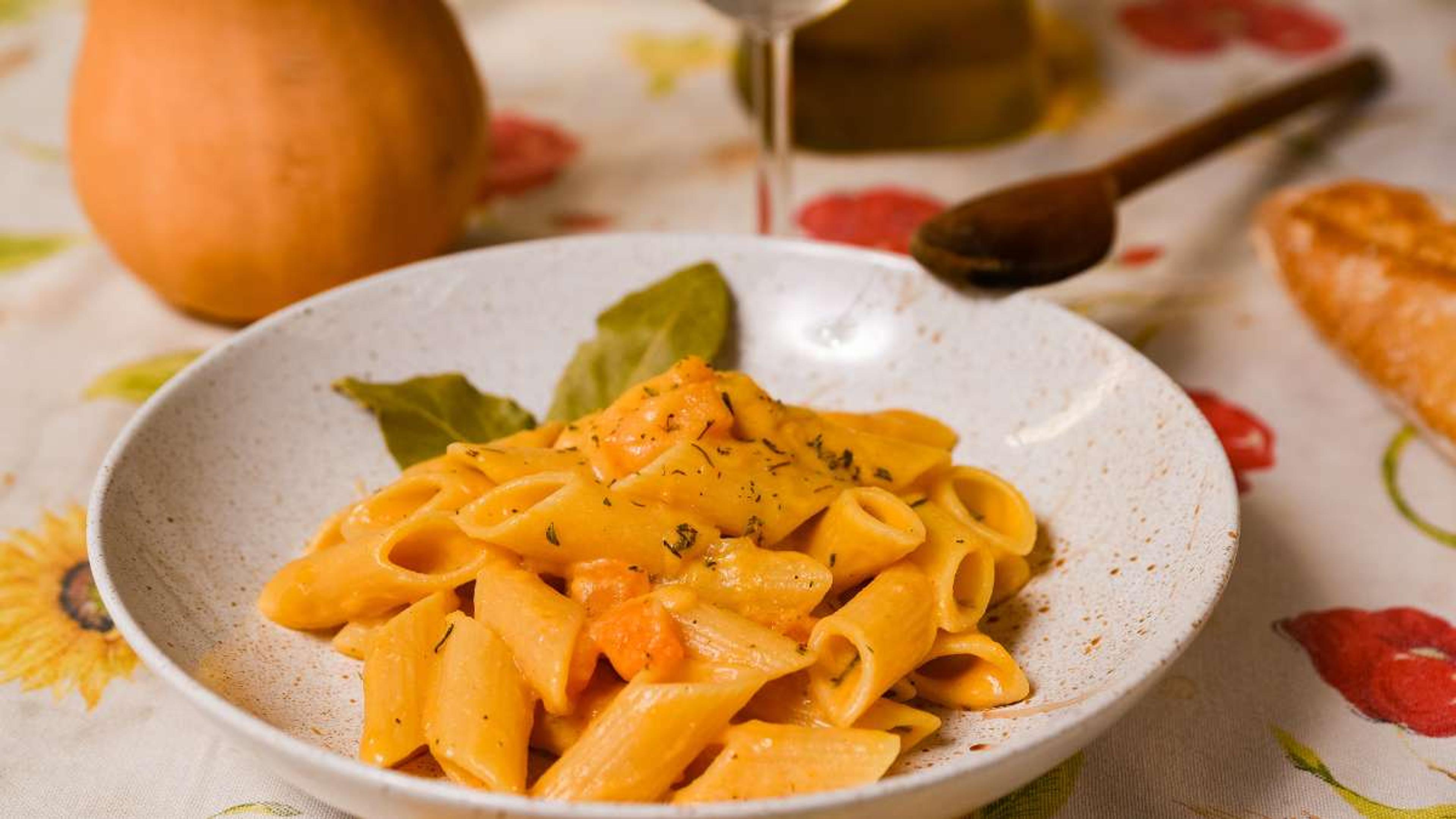
Butternut squash creamy pasta sauce is a delicious vegan recipe that doesn't contain any butter or cream. It's perfect for babies and toddlers because butternut squash is full of important nutrients like vitamin C, folate, and fiber.
Making this sauce is simple and quick, with just four ingredients including butternut squash, garlic, chickpea/white beans and sage (and vegetable stock if needed). Not only is this sauce a tasty addition to pasta, but it also provides a creamy texture that little ones will love.
The butternut squash adds a natural sweetness to the sauce, making it appealing to even the pickiest eaters. Plus, it's a great way to sneak in some extra vegetables into your child's meal.
By using vegan-friendly ingredients and focusing on nutrient-rich foods li only does it taste great, but it's also suitable for vegan diets. This creamy pasta sauce is an easy way to introduce your little one to the flavors of vegetables while providing them with essential nutrients.
Banana Coconut Cookies

The banana coconut cookies are a delicious and healthy treat for babies and toddlers. Made with just two ingredients - bananas and coconut - these cookies are dairy-free, tree nut-free, and egg-free, making them suitable for little ones with allergies or dietary restrictions.
They are also gluten-free and do not contain any added sugar. These toddler-friendly cookies are perfect for baby-led weaning or as a snack on the go. With their natural sweetness from the bananas and the added crunch from the coconut, these cookies provide a tasty way to introduce different flavors and textures to your child's diet while ensuring they are getting nutritious ingredients.
Consulting with Professionals
Consult with pediatricians and dietitians to ensure your vegan baby or toddler is meeting their nutritional needs. Monitor their growth and development closely under the guidance of these experts.
Get expert advice from pediatricians and dietitians
Consulting with pediatricians and dietitians is highly recommended for parents who are raising vegan babies and toddlers. These professionals can provide valuable guidance on meeting your child's nutritional needs while following a plant-based diet.
They can help ensure that your little one is getting all the necessary vitamins, minerals, and nutrients for healthy growth and development. Pediatricians and dietitians have the expertise to address any concerns or questions you may have about introducing solid foods, choosing appropriate supplements, managing allergies or sensitivities, and promoting optimal health in your vegan child.
Seeking their advice will help you navigate the unique aspects of raising a vegan baby or toddler with confidence.
Monitor growth and development
It is crucial to monitor the growth and development of vegan babies and toddlers. This helps ensure that they are receiving all the necessary nutrients for their healthy growth. Regular check-ups with pediatricians and dietitians are important, as they can provide guidance on whether a child's nutrition needs are being met.
Monitoring factors such as weight gain, height, and overall development can help identify any potential issues early on. It is also essential to track nutrient intake, especially for nutrients like vitamin B12, calcium, iron, and omega-3 fatty acids that may be limited in a vegan diet.
By closely monitoring growth and development, parents can make any necessary adjustments to their child's diet to support optimal health.
Conclusion
In conclusion, vegan diets can be a healthy choice for babies and toddlers with proper planning. By ensuring a variety of nutrient-rich foods, consulting with professionals, and monitoring growth and development, vegan parents can provide their little ones with the nutrition they need.
With creativity in meal preparation and introducing new flavors, vegan foods can be enjoyed by even the pickiest eaters. Remember to seek guidance from pediatricians or dietitians for personalized advice on meeting nutritional needs while following a vegan lifestyle.
FAQs
1. Can toddlers and babies get all the necessary nutrients from a vegan diet?
Yes, toddlers and babies can get all the necessary nutrients from a well-planned vegan diet that includes a variety of plant-based foods such as fruits, vegetables, whole grains, legumes, nuts, and fortified foods.
2. What are some good sources of protein for vegan toddlers and babies?
Good sources of protein for vegan toddlers and babies include lentils, chickpeas, tofu, quinoa, nut butters (like peanut butter), chia seeds, and hemp seeds.
3. Is it safe to introduce soy milk or other non-dairy milk alternatives to infants?
Yes, it is safe to introduce soy milk or other non-dairy milk alternatives to infants after consulting with their pediatrician. It's important to ensure that these milk alternatives are fortified with calcium and vitamin D.
4. Are there any vitamins or supplements that vegan toddlers and babies may need?
Vegan toddlers and babies may need supplements of vitamin B12 since this nutrient mainly comes from animal-based foods. Consult with a pediatrician or registered dietitian for guidance on appropriate supplementation based on individual needs.

